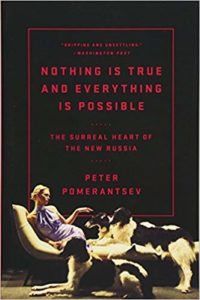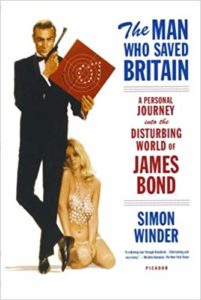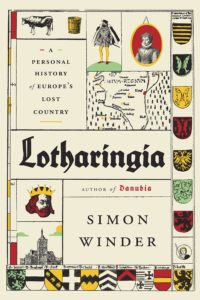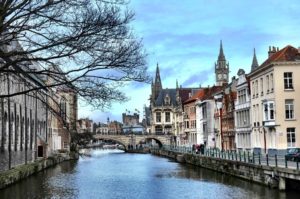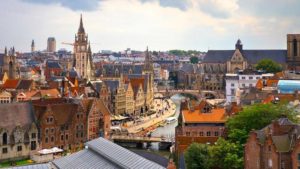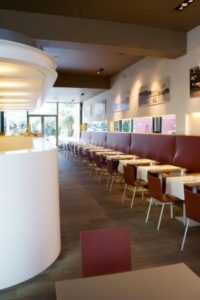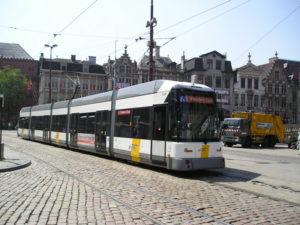Russia has been in the news most recently for the war in Ukraine and previously in terms of election interference or climate change. But information about what the country is really like doesn’t seem to interest journalists or their editors.
Luckily for us, Russian-born TV producer Peter Pomerantsev has done a deep dive about his experience making documentaries there and meeting people ranging from aspiring small town models to obscenely powerful oligarchs. Nothing is True and Everything Is Possible examines a country that shifts like a kaleidoscope on steroids as its leaders stealthily fight for global supremacy and tens of billions of dollars illegally slosh through its economy in often unchartable ways. A country that seems to have lost its mind in the rush to grab wealth wherever it can.
One thing you can count on with today’s Russia is insane impermanence, especially in Moscow. The city itself is in a perpetual paroxysm of building and rebuilding, and the author’s descriptions of those changes are so memorable. “Whole swathes of town are demolished in fits of self-destruction, wastelands abandoned for years and for no apparent reason, skyscrapers erupting before there are any roads leading to them and then left empty in the dirty snow.”
This re-invention frenzy dwarfs anything that Americans have experienced. People become wealthy there with the speed of light and for “its new heroes, life is just one glittering masquerade, where every role and any position or belief is mutable.” The whole book captures the bizarre reality that has taken hold of Russia and squeezed it dry, while making some people so desperate to feel positive that they’re hypnotized by TV charlatans and self-help cult leaders.
Corruption and bribery rule in every sphere of life, whether getting a driver’s license or snagging exemptions from being drafted into the army. That’s simply how things get done. But one of the most egregious examples is the Sochi Olympics. Those games cost tens of billions more than the previous Olympics–the extra money just drifted away.
That’s what seems to happen across the country with one venture after another, and much of that money has been buying real estate, soccer teams, fabulous art, and companies in London and all across Europe. Rapacious, dangerously charming Russians seem to have colonized that city, appearing as brash arrivistes but slowly becoming “classy” and moving on from plush city addresses to country estates.
Deep Russian paranoia is stoked by state-controlled media that makes Fox TV seem as anodyne as a chirpy Hallmark greeting card. Against an apocalyptic backdrop, it constantly warns viewers against “Gay-Europa,” Western fascists and the CIA infesting Ukraine, Western plans for genocide against Russia, and “American-sponsored fascists crucifying Russian children on the squares of Ukrainian towns.”
That media machine has produced weeping women who testified to those appalling horrors. Of course they were fake. It’s all fake news meant to keep the government in power and hide the reality of corruption so widespread that you can’t say it permeates the state. It is the state.
The author notes that the Kremlin “has finally mastered the art of fusing reality TV and authoritarianism to keep the great, 140-million-strong population entertained, distracted, constantly exposed to geopolitical nightmares, which if repeated enough times can become infectious.”
You have to wonder if this is a warning to readers that the same thing could happen in Western countries, perhaps with less drama and less notice–because who could imagine it possible?
Lev Raphael has reviewed for The Washington Post, The Detroit Free Press and many other media outlets since the mid-1990s.

